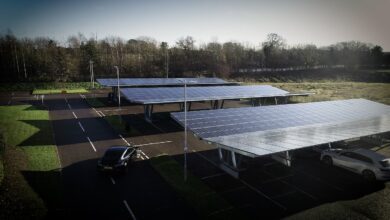
UK tourism is thriving. In the last two years alone, the industry has grown by almost 15%, equivalent to an extra £18.5bn, according to Tourism Alliance.
Two in three of these travellers visiting for leisure, demand for a new breed of ‘lifestyle’ hotels is also booming, according Visit Britain.
But how can owners entering this sector realise the growth opportunity, while still navigating the potential pitfalls?
Still in its relative infancy, this growing category can be challenging to define. It will mean different things to different people but one thing is for sure – it is the antithesis of a formulaic experience.
It’s been over 10 years since we opened our first lifestyle hotel, Andaz London Liverpool Street, and so for us it comes down to one basic fact – lifestyle hotels need to accommodate modern living and be a place where people can ‘see and be seen’. In those 10 years we have had to keep our finger on the pulse and change and evolve our services and facilities to meet the ever changing demands of our customers in this ever evolving market.
Lifestyle hotels meet the needs of travellers who want a hotel that can accommodate their own behaviours and values, not the other way around. A mass-market, ‘cookie cutter’ approach holds little appeal for such guests, who value authenticity and unique experiences.
This brings up a range of questions if you are deciding whether to follow the lifestyle route or not. Are you in a tourist destination, or are your guests seeking a base where they can sleep and fit in a quick gym session between meetings and heading out for the evening?
The answer is often rooted in location. Once you know why it is attractive and why guests need to be there, you can start to understand what facilities and programming make your hotel right for the way those guests want to live when they get there.
Many urban environments have been transformed in the last 20 years – a process that continues to deliver new hip neighbourhoods that people want to visit without feeling like a tourist.
Improvements to connectivity in urban areas helps to establish these secondary locations – and a brand that delivers a sense of place through, for example, authentic food offerings and spaces where locals and tourists can mingle naturally, will be more attractive.
What’s more, these edgier locations are often also more cost effective for developers than more established parts of the city, giving owners higher returns. And that is critical – a lifestyle hotel must not only attract today’s consumers but be profitable for the owners. It would be easy to get carried away by the opportunity for new, innovative, even trend-led facilities and services without maintaining a keen eye on the ROI.
Owners need smart brands that can be built in space-constrained urban sites, and which offer flexible and cost-effective food and beverage outlets, alongside an equally flexible approach to spa, leisure and conference facilities. The space needs to deliver value for owners and experiences for consumers, be it a screening room, rooftop garden, edible landscaping or simply artwork.
With this in mind, we recently launched Caption By Hyatt, a select-service lifestyle brand, anchored by a distinctive food and beverage experience, with comfortable, flexible and communal spaces. We are only just scratching the surface of what lifestyle hotels can do and we will continue to grow our presence in this sector.
There is a wealth of opportunity to drive value with lifestyle hotels – as varied as the needs of consumers themselves. By taking a flexible approach with a keen eye on location, owners can deliver hotels that are not only on trend but timeless, and that are absolutely worth the hype.
By Peter Norman, SVP acquisitions and development at Hyatt.









